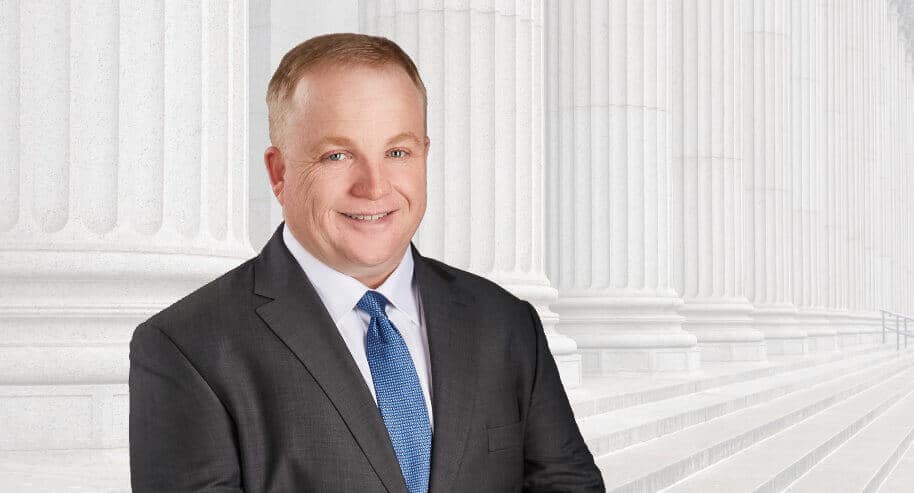
LGBTQ law has been constantly changing over the past few decades. Many legal issues involving same-sex partners and their families are handled in the same manner as those of opposite-sex couples; however, there are some distinctions. Law involving lesbian, gay, bisexual, transgender, and queer issues can be complex.
With more than 20 years of experience, North Carolina family lawyer Jonathan Breeden can answer your questions about marriage, divorce, and other LGBTQ issues. Contact him today at (919) 661-4970 to discuss how he can help you.
In June 2015, the United States Supreme Court set a historical precedent when it overturned same-sex marriage bans in Obergefell v. Hodges. This case was a major victory for same-sex partners. Lower courts had already overturned same-sex marriage bans in many states, including North Carolina, but the Supreme Court’s decision meant that same-sex marriages could be performed in all 50 states and must be recognized by all 50 states.
In North Carolina, there is no difference between marriage for same-sex couples and opposite-sex couples. Additionally, legal marriages from other states are recognized as lawful in North Carolina. Although there is no residency requirement to be married in North Carolina, there are some requirements to obtain a license, which is valid for 60 days.
Marriage requirements include:
While many of the state’s laws cover information same-sex couples need to have, there will still be questions or situations that simply have not been raised. The state has developed same-sex marriage online resources as well as an FAQ section. It’s also a good idea to talk about your situation with a North Carolina family lawyer who is experienced in divorce and family court.
Many LGBTQ couples fail to protect their financial assets before marriage. Although you don’t want to think about separation before marriage, you need to think about your best interests no matter what happens. An experienced North Carolina LGBTQ marriage attorney can help you prepare for marriage with the following:
Obergefell v. Hodges has created some questions for many states as they attempt to navigate the landscape of unfamiliar laws. Same-sex partners in North Carolina are learning the ins and outs of what marriage entails. And, unfortunately, some of them are learning about filing for divorce as well.
Same-sex divorces are treated the same as those that take place between opposite-sex couples. Divorce requirements include:
North Carolina is an equitable distribution state, so all assets that same-sex couples acquired during their marriage will be divided between them in a manner that the court finds fair. That means that the disbursement of marital assets may not be divided in half among the former spouses, unless the court considers a 50/50 split to be the most equitable division.
Same-sex couples are entitled to request alimony just as any other people getting divorced. The court, upon receiving a request for alimony, will determine which spouse is dependent and which is supporting. Again, the court reviews many factors when determining if alimony will be awarded, and if so, how much will be paid and for how long.
Legal issues involving children can be particularly tricky for LGBTQ couples. Both parents want to have equal rights regarding their children. Courts will consider biological relationship as well as the abilities of parents to care for and make decisions about children. If you have minor children, Breeden Law Office can help with the following issues:
If your spouse dies intestate, or without a will, you are an heir to the estate as a legal spouse. You can file to become the personal representative of the estate as well. Without a will, your spouse’s estate will be probated according to the state’s intestate succession laws.
In order to avoid the time and hassle of this process, it is best that you write a will. Our experienced North Carolina will attorney can help you if you have questions.
If you are incapacitated for any reason, it is best to have a power of attorney that allows your spouse or partner the legal authority to make decisions on your behalf. A health care power of attorney will allow your partner to make medical decisions, such as whether you want to receive assisted breathing. A durable power of attorney can grant even broader authority, or it may be designed to grant narrow authority over specific aspects of your life and assets. A durable power of attorney endures if you become incapacitated and can make sure your partner has control in a dire situation.
Powers of attorney can be complex and must be carefully created to address specific situations. Let our North Carolina family lawyer help you create an effective document that serves your best interests.

Attorney Jonathan Breeden of Breeden Law Office has an intimate knowledge of the law. He understands the complex nature of LGBTQ legal issues and wants to help you reach a beneficial outcome for your family. To see how he can help you, call Jonathan Breeden at (919) 661-4970.
Call Breeden Law Office today:
Call (919) 661-4970